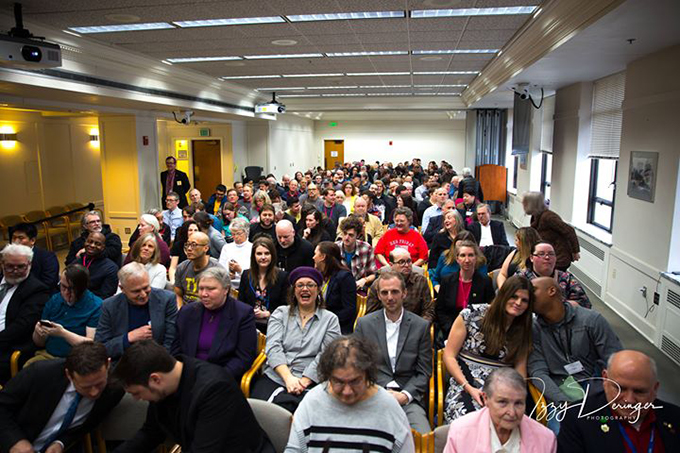Democracy is supposed to be …
By Michael Gibelyou
Democracy is supposed to be about the will and interests of the people. While we have in the past been reminded to expand the definition of people in our laws, the proliferation of money in our political process threatens to narrow that definition once again to those with the money to buy a seat in Congress.
Through advertising and ownership the wealthy have drowned out the voice of opposition to their agenda, treating anyone with a differing opinion as crazy, or dangerous. Through Super PACs the wealthy have whispered lies into the ears of voters turning elections against those that would not do their bidding. In the last few years, the mask has come off, and some congresspersons have privately admitted that the system is rigged with money.
Over the last few decades the Supreme Court, with the help of various lobbying groups such as the Federalist Society, have removed constraints on campaign funding when it comes to the highest levels of our Government. Buckley V. Valeo ruled that limits on independent spending were unconstitutional, opening the door for Super PACs that pour money into races and flood voters with ads, money that is impossible to match legally by candidates who are not themselves obscenely rich. Citizens United likewise removed limits from corporations doing the same thing by ruling that spending money was the same as free speech. When the state of Montana attempted to reveal the names of those spending the money in this manner, their law was struck down. The government has legalized the spending of unlimited money to elect candidates. When a candidate breaks the rules and coordinates with their Super PAC, as Hillary Clinton did in 2016, nothing is done.
The impact of this can be clearly seen in everyday life. There is almost nowhere in the United States where a single income at minimum wage can afford rent, let alone the other inflated costs of living. Young families are outbid by corporations for single family homes. Rent control is forbidden in half of the country. There are more empty homes than homeless people in the United States. These policy choices do not serve the interests of everyone, just the owners of property.
Labor unions are supposed to protect their members rights, yet unions alone are not enough in the face of this corruption. Railroad companies, empowered by congress into forcing rejected contracts on their unions, are lobbying to reduce safety by only placing a single employee on each train at a time. The PRO act, a measure intended to strengthen unions, failed to pass in 2021, and while it has been reintroduced the chair of the house committee has already voiced opposition. Meanwhile some states are stripping protections against child labor.
For those who fear that eliminating campaign corruption would remove the ability of a union to lobby, it’s important to remember that unions will never be able to outspend the owners. Unions’ power has always been in their members’ actions and solidarity. Strikes are the true leverage successful unions wield, and the employees’ power is strongest when their voices can be heard. No matter what anyone’s personal goal for change is, this obstacle has to be removed for that change to succeed. Fortunately for everyone, there is a way to do this.
There are two ways to counteract a ruling by the Supreme Court. The first is the Court itself changes positions, as it did when it overturned Roe V. Wade. Given the makeup of the Court as it currently stands, it is doubtful that the Supreme Court will change any of its positions; at least not in the way that we would wish, hope for, or support. Since all Supreme Court rulings must derive from an interpretation of the Constitution, if the Constitution were to be changed, as to address a specific issue, any ruling to the contrary would be immediately rendered moot. This has been done in the past through a direct act from Congress. The difficulty with that is that Congress is the very body that must be regulated. Given how difficult it has been just to ban stock trading by legislators, it is unimaginable that congress as a whole will renounce campaign corruption willingly.
Therefore the only feasible way to get this accomplished is utilizing the other way that Article V of the Constitution allows: a convention, applied for by 2/3 of the States, to draft and propose an amendment for ratification. Simply put, remove Congress from the equation by using state governments to appoint delegates to discuss the matter and design a solution. Ratification would then be passed by the state legislatures.
WolfPAC, a nonpartisan organization dedicated to this exact goal, has already managed to convince five states to pass calls for this convention. With your help, we can get the rest. You can take the opportunity to get involved, not just with the legislative process, but by discussing the issues with those in your life. No matter what you have time to do, it will help our collective cause.
…
